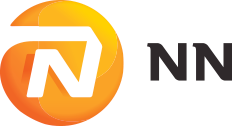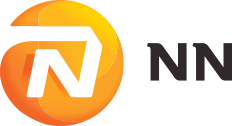Elsevier Weekblad. Please read the English translation below, or read the original article in Dutch.
Nationale-Nederlanden made an unsolicited takeover bid for its competitor Delta Lloyd. It was a bold move. But NN Group CEO Lard Friese (55) succeeded where many other takeover attempts in the Netherlands failed this year.
If there is an image that Nationale-Nederlanden wants to portray, it is robustness. A refined CEO, a large financial buffer and no wild adventures. This is the message that Nationale-Nederlanden wanted to convey to its investors during an Investor Day held at the end of November at the Van Nelle Factory in Rotterdam.
Well, Nationale-Nederlanden … NN Group is what the international company is called these days. Although most of the sales are still generated on Dutch soil and the corporate colour is orange, when it comes to the shareholders, there is very little that is ‘national’ or ‘Dutch’ about them anymore. Some 85% of the shareholders are foreign, thus NN Group CEO Lard Friese found himself at the Van Nelle Factory shaking hands with people from the City of London, investment bankers from the US and even a few people who had flown in from Asia.
These people from the world of big money had not just turned up to talk about the figures: the profits, Solvency II ratio or unit-linked products as profiteering policies are referred to in these circles. It is not just about the company, it is also about the person. ‘They want to know: to whom have I entrusted my money? Is he a solid CEO, or an aggressive one?’ says Friese before the start of the Investor Day. The day before, Friese and his colleagues had dined with investors. It was an extra opportunity for the shareholders to see who they are dealing with.
Merger followed by separation
Friese, the son of teachers, led NN Group to an IPO in 2014. In 1991, Nationale-Nederlanden merged with the NMB Postbank Group to become Internationale Nederlanden Group (ING). But during the credit crisis, the banking and insurance group ran into difficulties and needed state aid. As ‘punishment’, the European Commission required ING to be separated into an insurer and asset manager, and a bank.
Friese came to Nationale-Nederlanden at a salient moment: 1 September 2008. Two weeks later, the American investment bank Lehman Brothers collapsed and the credit crisis reached its climax. ‘Great timing’, says Friese, followed by a long laugh. Then he becomes serious again: ‘It was a very turbulent time, but I also learnt a lot.’ He cites in particular Jan Hommen, the doyen of the Dutch business community, who headed up ING in 2009. ‘An exceptional man from whom I learnt a huge amount. I have profound respect for him.’
High buffers and plenty of cash
One of the lessons that the insurer learned: never again. This is the message they want to convey to shareholders in any event. If there were to be another crisis, NN Group has such high buffers and so much cash that it could save itself and would not have to rely on the state. When shareholders in the Van Nelle Factory cautiously ask whether these buffers couldn’t be lowered a little, the pleasant and shrouded response from Friese’s financial right-hand man: ‘no’. The money is needed for challenging economic times.
A day later, Friese confirms that image in an interview with Elsevier Weekblad at the head office in The Hague. ‘We want to be a robust company. As CEO, you need to make sure that the finances are in good shape, so that customers know that their pensions are in safe hands.’
Friese points to the glass walls of the meeting room. All along the corridor, words are etched on these glass walls: ‘You matter. That is our motto. It is printed here in all the languages of the countries in which we operate.’ From Japanese, Hungarian and Turkish to a host of other languages. Only the Dutch is missing.
Focus on the insurance sector
Although the requirement to split the business from ING came from Brussels, both companies are perfectly happy with it. ING can focus on banking and is well known as a digital pioneer. NN Group can concentrate its efforts on the insurance and asset management sector once again. There is no longer a management layer that has to keep an eye on both sectors or has to decide: should I invest in the insurance or asset management arm, or the bank? ‘We were happily married to ING for over 20 years’, Friese reflects.
The separation had one disadvantage. ‘When we floated the company, we realised that we would lose the brand name ING. We operated under that name everywhere, except in the Netherlands. We had to develop our own identity.’ Outside the Netherlands, the name ING was replaced by NN on all policies. The same name and the same vision in all other countries. According to Friese, who himself spent many years working in Japan and the Czech Republic, this was easy because in every other country, NN had built the business from scratch. ‘No takeovers. Just a couple of Dutch people with a plan and a suitcase who travelled abroad.’ In Japan, in the 1980s, Nationale-Nederlanden moved into offices occupied by its fellow countryman, Shell. The petrol stations were used as a sales office. In Hungary, after the demise of communism, the business started in a hotel. It is an enterprising approach, that is often associated with Delta Lloyd.
In the insurance sector, Delta Lloyd was virtually the opposite of Nationale-Nederlanden. Where the latter had a generous financial buffer, the former’s buffer were small. While the man born in the Betuwe, Lard Friese, had an image as a safe pair of hands; sailor and Delta Lloyd CEO Niek Hoek was mainly known as someone who sailed into the wind. Hoek came into conflict with regulator the Dutch Central Bank (De Nederlandsche Bank) and stood down, as did his Chief Financial Officer. To the outside world, it was obvious that Delta Lloyd was having problems.
Hoek’s successor, Hans van der Noordaa, spent two years trying to turn the tide, but failed to make enough progress. The insurance market was under pressure. Numerous non-life policies were incurring losses and life insurance had virtually died out as a result of the unit-linked policies affair and low interest rates, which made these products expensive. This is why a number of experts were expecting a wave of mergers among the six large insurers: Achmea, Delta Lloyd, Nationale-Nederlanden, ASR, Aegon and Vivat. The question was simply: who would make the first move?
Takeover of Delta Lloyd
‘We are a company that likes to take control of its destiny,’ says Friese. So, NN started to think about taking over Delta Lloyd. In October 2016, the moment had arrived. Friese announced that he wanted to offer 2.4 billion euros. But Delta Lloyd did not want to talk. It is a scene that hardly ever plays out in the Netherlands: a company that launches an unsolicited bid for a competitor. In this country of ours, that is simply not done. ‘It is true, it doesn’t happen very often. Announcing the bid publically felt a bit awkward. But to us, combining our companies was such a logical step that we thought: this is just a good idea.’
Nationale-Nederlanden market leader
Friese comes across as calm, laughs heartily a couple of times during the interview, greets his staff warmly when he walks along the corridor. But on the Investor Day in Rotterdam, he is also someone who speaks with conviction. A man who is prepared to cut costs if insurances become less profitable. In the three and a half years that NN Group has stood on its own two feet, Friese has reduced costs in the Netherlands by a quarter. Since January, 750 jobs have been lost at Delta Lloyd and NN. The logos at Delta Lloyd’s head office in Amsterdam will gradually be replaced by Nationale-Nederlanden’s logo. Next year, Delta Lloyd will disappear as a brand and will become part of Nationale-Nederlanden. New, large takeovers are not on the table for the time being, Friese tells shareholders.
The takeover has made Nationale-Nederlanden the market leader in many areas in the Netherlands. ‘The insurance market is a tough market, with lots of competition, but I think that’s a good thing. It means that there is constant innovation.’ Banks are continuously talking about fintech, technological newcomers that are making life difficult for banks. But you hear virtually nothing about insuretech. Nevertheless, Friese sees all kinds of innovations in his sector: drones that calculate storm or flood damage, for example.
Consumers will see more devices in cars that monitor driving behaviour. Drivers who opt for one of these devices and who drive safely, will receive a discount. Insurers will know more and more about their customers. The question is: do customers want their insurers to constantly see how fast they are driving and where they are? And will insurers who find themselves in financial difficulties use the data for commercial purposes: you are driving past shop X, you can get a discount there now. Friese: ‘Of course we will not do that!’
Changes in the pensions market
He also sees changes in the Dutch pensions market. Nationale-Nederlanden was already providing lots of pensions, for example, to people who wanted to use an insurance product to save more towards their pensions. But more and more companies no longer want to undertake the work involved in managing their own pension fund. They prefer to outsource it to an insurer. ‘In the Netherlands, we have a tradition of well-organised pensions. It’s something we can be proud of.’ But does he think the entire pension system needs overhauling? ‘People are changing jobs more often; the composition of the family is different. The pension system needs to reflect this. So, it needs to be simpler, and more tailored to the individual.’
A couple of days before the interview, Friese himself received a letter from NN. He had just turned 55, and just like all NN employees, received an invitation from a pension coach to see how well his pension was performing: did he have a pension shortfall or had he already accumulated enough capital to allow him to take early retirement? ‘I am very interested to see how that goes’, says Friese, laughing. Has he got good pension arrangements in place? ‘What’s that saying again? The shoemaker’s children always go barefoot? No, of course, I have that sorted. That is my job.’

